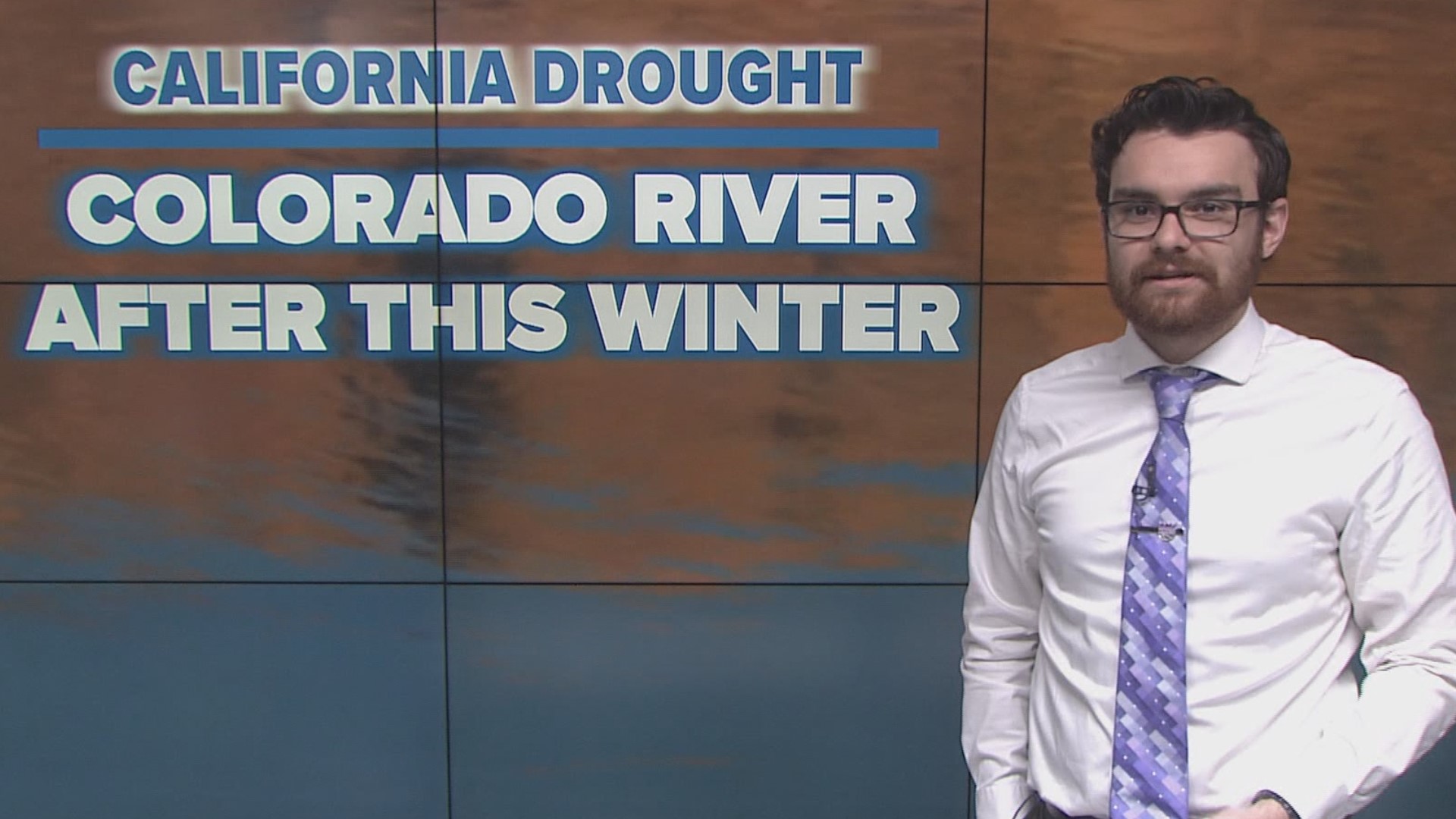SACRAMENTO, Calif. — Even with the exceptionally wet winter, the crisis of the Colorado River continues to loom. The Colorado River basin has been stressed to the max since the turn of the century due to exceptional drought and explosive population growth in the region. Forty million people in seven states rely on water from the river.
In order to manage the water and divide it between the states, the states came together to create a compact known as the Colorado River Compact, more commonly known as the law of the river.
The so-called "law of the river" came to be over 100 years ago during an exceptionally wet period for the American southwest. Cutbacks are needed to prevent potentially catastrophic scenarios along the Colorado River.
"The natural runoff of the Colorado River system is 32% less than the runoff in the system in the 1910s and 20s when the compact was negotiated," said Dr. Jack Schmidt, a professor and director of Colorado River studies at Utah State University.
Here in California there's been a tremendous boost in reservoir storage just this winter. In the Colorado River basin, a single wet winter won't be enough to solve the crisis for the shrinking river.
"The reservoirs of the Colorado River system are so vast that you would need four or five more years as large as this one to refill the system. So in contrast to the stories in the Sierra, and in California, where the reservoirs are refilling just this year, it would take many additional years to refill the Colorado system because they're so large," said Schmidt. "And so where that leaves us is the need to make fundamental changes in the law of the river to negotiate strategies to reduce consumptive use."
The wet winter gives the states a bit more time to hash out new agreements for how the river should be managed, but the clock continues to tick on the crisis.
From the Golden State perspective, though conservation efforts and cuts are underway, California feels the majority of the difficult cuts should be done by states with junior water rights, like Arizona. California has the most senior Colorado River rights and understandably doesn't want to give those up.
The states have not been able to reach an agreement and the federal government announced plans to step in if no agreements can be made.
The Bureau of Reclamation recently put forth two alternatives to managing the Colorado going forward, one of which involves an even percentage cut for each of the states to make, regardless of water seniority rights.
"I have to believe that we'll get out of this with some very large reductions in use and very significant changes, but it will be very hard to accomplish that. But I have to believe that we can do that," said Schmidt.

















